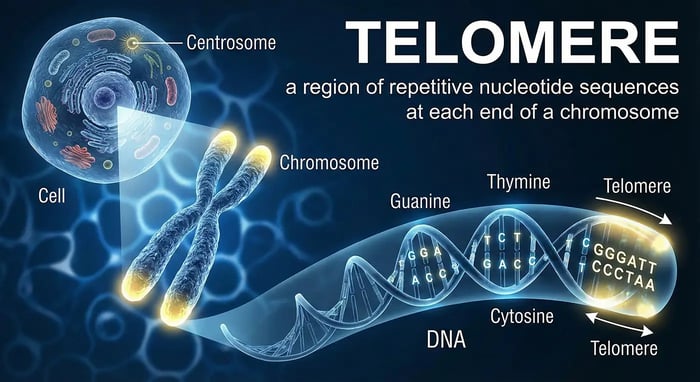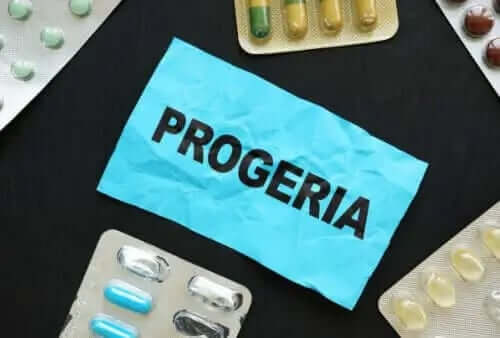Resveratrol and Weight Management: Understanding the Science Behind This Powerful Compound
The struggle with weight management affects millions of people worldwide, leading many to search for effective solutions beyond traditional dieting. Resveratrol, a naturally occurring compound found in red wine, grapes, and berries, has emerged as a promising supplement that may support healthy weight management through its unique ability to mimic the benefits of caloric restriction. This comprehensive guide explores how resveratrol works, what the latest research reveals, and why this compound might be the breakthrough many have been searching for.

What Makes Resveratrol Special for Weight Management?
Unlike typical weight loss supplements that focus on suppressing appetite or boosting metabolism artificially, resveratrol works at the cellular level to optimize how your body processes energy and stores fat. This polyphenol compound activates specific proteins called sirtuins, which play crucial roles in cellular health, metabolism, and longevity.
The beauty of resveratrol lies in its ability to trigger the same beneficial pathways that are activated during caloric restriction, but without requiring you to drastically reduce your food intake. This means you can potentially experience improved metabolic function, better insulin sensitivity, and enhanced fat burning while maintaining a normal, healthy diet.
The Science Behind Resveratrol and Caloric Restriction Mimicry
Scientists have long known that reducing caloric intake by 30-50% can lead to remarkable health benefits, including reduced risk of chronic diseases, improved stress resistance, and enhanced cognitive function. However, maintaining such severe dietary restrictions is challenging and often unsustainable for most people.
This is where resveratrol enters the picture as a game-changer. Research has shown that resveratrol activates SIRT1, a protein that becomes highly active during caloric restriction. When SIRT1 is activated, it triggers a cascade of beneficial effects throughout the body:
- Enhanced mitochondrial function - Your cells produce energy more efficiently
- Improved insulin sensitivity - Better blood sugar control and reduced fat storage
- Increased fat oxidation - Your body becomes better at burning fat for fuel
- Reduced inflammation - Lower levels of inflammatory markers associated with obesity
- Optimized gene expression - Activation of genes associated with longevity and metabolic health
Groundbreaking Human Study: Resveratrol's Impact on Obesity
While many supplements show promise in laboratory settings, resveratrol has proven its effectiveness in human clinical trials. A landmark study published in Cell Metabolism examined the effects of resveratrol supplementation on obese individuals over a 30-day period.
The researchers provided participants with trans-resveratrol supplements and monitored various physiological parameters. The results were nothing short of remarkable:
Key Findings from the 30-Day Study:
- Improved Energy Efficiency - Participants showed lower resting energy expenditure, indicating their bodies became more efficient at utilizing energy
- Enhanced Metabolic Profile - Significant improvements in metabolic markers were observed
- Reduced Blood Glucose - Fasting glucose levels decreased, suggesting better blood sugar control
- Lower Insulin Levels - Reduced insulin concentrations indicated improved insulin sensitivity
- Decreased Triglycerides - Blood lipid profiles improved with lower triglyceride levels
- Enhanced Fat Metabolism - Fat tissue showed improved ability to break down stored fat molecules
These results demonstrate that resveratrol can deliver many of the metabolic benefits associated with caloric restriction, offering hope to those struggling with weight management and metabolic health issues.

How Resveratrol Transforms Your Body's Metabolism
Understanding how resveratrol works can help you appreciate its potential for supporting your weight management goals. When you take resveratrol supplements, several transformative processes begin:
1. Activation of Cellular Energy Sensors
Resveratrol activates AMPK (AMP-activated protein kinase), often called the body's "metabolic master switch." This activation signals your cells to become more efficient at producing and using energy, leading to improved fat burning and reduced fat storage.
2. Mitochondrial Biogenesis
Your cells begin producing more mitochondria, the powerhouses that generate cellular energy. More mitochondria mean better energy production and enhanced fat oxidation capacity.
3. Improved Insulin Signaling
Resveratrol helps restore proper insulin function, allowing your body to better regulate blood sugar levels and reduce the tendency to store excess calories as fat.
4. Enhanced Lipid Metabolism
The compound promotes the breakdown of stored fats and reduces the formation of new fat cells, supporting a healthier body composition over time.
Beyond Weight Loss: Additional Benefits of Resveratrol
While weight management might be your primary concern, resveratrol offers a wealth of additional health benefits that make it a valuable addition to any wellness routine:
- Cardiovascular Protection - Supports heart health by improving blood vessel function and reducing oxidative stress
- Anti-Aging Properties - Activates longevity genes and protects against age-related cellular damage
- Cognitive Support - May help maintain brain health and protect against neurodegenerative conditions
- Anti-Inflammatory Effects - Reduces chronic inflammation linked to various health issues
- Antioxidant Power - Neutralizes harmful free radicals that can damage cells and accelerate aging
- Exercise Performance - Some studies suggest improved endurance and exercise capacity
Choosing the Right Resveratrol Supplement
Not all resveratrol supplements are created equal. To maximize your results, consider these important factors when selecting a supplement:
Form Matters: Trans-Resveratrol vs. Cis-Resveratrol
Trans-resveratrol is the bioactive form that provides the health benefits you're seeking. Always look for supplements that specify trans-resveratrol content rather than just "resveratrol."
Dosage Considerations
Research studies typically use doses ranging from 150mg to 500mg of trans-resveratrol daily. Start with a lower dose and gradually increase as your body adjusts.
Quality and Purity
Choose supplements from reputable manufacturers that provide third-party testing results and use high-quality extraction methods to ensure purity and potency.
Bioavailability Enhancement
Some formulations include ingredients like piperine (black pepper extract) or are delivered in special formats to improve absorption and bioavailability.

Incorporating Resveratrol into Your Healthy Lifestyle
While resveratrol offers impressive benefits, it works best as part of a comprehensive approach to health and weight management. Here's how to maximize your results:
Timing Your Supplementation
Many experts recommend taking resveratrol with a meal containing healthy fats to improve absorption. Some people prefer morning supplementation for energy support, while others take it in the evening for its potential sleep and recovery benefits.
Synergistic Lifestyle Factors
- Balanced Nutrition - Focus on whole foods, lean proteins, and plenty of vegetables
- Regular Exercise - Combine cardiovascular exercise with strength training for optimal results
- Adequate Sleep - Aim for 7-9 hours of quality sleep to support metabolic health
- Stress Management - Practice relaxation techniques to reduce cortisol levels
- Hydration - Drink plenty of water throughout the day to support cellular function
Real Success Stories: How Resveratrol Changed Lives
Many individuals have experienced transformative results with resveratrol supplementation. While individual results vary, common experiences include:
- Increased energy levels and reduced fatigue
- Improved body composition with less effort
- Better blood sugar control and reduced cravings
- Enhanced mental clarity and focus
- Improved exercise recovery and performance
- Overall sense of vitality and well-being
These positive outcomes demonstrate the potential of resveratrol to support not just weight management, but overall quality of life.
The Future of Resveratrol Research
The scientific community continues to explore the full potential of resveratrol. Ongoing research is investigating:
- Optimal dosing strategies for different health goals
- Combination therapies with other natural compounds
- Personalized approaches based on genetic factors
- Long-term effects on healthspan and lifespan
- Applications for specific metabolic conditions
As our understanding deepens, resveratrol's role in supporting human health and weight management will likely become even more significant.
Making an Informed Decision About Resveratrol
If you're considering adding resveratrol to your wellness routine, remember that this powerful compound offers a science-backed approach to supporting healthy weight management and overall metabolic health. The research clearly demonstrates its ability to activate beneficial pathways similar to caloric restriction, providing a practical solution for those seeking metabolic optimization without extreme dietary measures.
By choosing high-quality resveratrol supplements and combining them with healthy lifestyle practices, you're taking a proactive step toward achieving your health and weight management goals. The journey to better health doesn't have to be overwhelming or restrictive. With resveratrol, you have a natural ally that works with your body's inherent wisdom to promote optimal function and vitality.
Frequently Asked Questions About Resveratrol
How long does it take to see results with resveratrol supplementation?
Most studies show measurable improvements within 30 days of consistent resveratrol supplementation. However, some people report feeling increased energy and well-being within the first week. For optimal weight management results, most experts recommend giving resveratrol at least 8-12 weeks while maintaining healthy lifestyle habits. Remember that individual results can vary based on factors like dosage, overall health status, and lifestyle choices.
Can I get enough resveratrol from food sources alone?
While resveratrol is naturally found in foods like red grapes, blueberries, cranberries, and peanuts, the amounts are typically too small to achieve the therapeutic benefits seen in research studies. For example, you would need to drink hundreds of glasses of red wine daily to match the resveratrol doses used in clinical trials. This makes supplementation a more practical and effective option for those seeking the weight management and metabolic benefits of resveratrol.
Is resveratrol safe for long-term use?
Research indicates that resveratrol is generally safe for long-term use when taken at recommended doses. Studies have used doses up to 5 grams daily without serious adverse effects, though most supplements contain 150-500mg. Common side effects are mild and may include digestive discomfort in sensitive individuals. As with any supplement, it's wise to consult with a healthcare provider, especially if you have existing health conditions or take medications.
Can resveratrol help with belly fat specifically?
Resveratrol may be particularly beneficial for reducing visceral (belly) fat due to its effects on insulin sensitivity and metabolic function. By improving how your body processes glucose and reducing inflammation, resveratrol can help address the underlying factors that contribute to abdominal fat storage. Combined with a healthy diet and regular exercise, resveratrol supplementation may support more effective belly fat reduction compared to diet and exercise alone.
Should I take resveratrol with or without food?
For optimal absorption, take resveratrol with a meal containing some healthy fats. The presence of dietary fat can significantly improve the bioavailability of resveratrol, allowing your body to absorb and utilize more of the compound. Some people prefer taking it with breakfast to support energy throughout the day, while others take it with dinner. The key is consistency and pairing it with food for better absorption.
Can resveratrol replace the need for diet and exercise?
While resveratrol offers impressive metabolic benefits, it works best as a complement to, not a replacement for, healthy lifestyle habits. Think of resveratrol as a powerful tool that enhances your body's natural fat-burning and metabolic processes. When combined with nutritious eating and regular physical activity, resveratrol can accelerate your progress and make your efforts more effective. The synergy between resveratrol supplementation and healthy habits creates optimal conditions for sustainable weight management.
What's the difference between resveratrol and other weight loss supplements?
Unlike stimulant-based weight loss supplements that artificially boost metabolism, resveratrol works by optimizing your body's natural metabolic processes at the cellular level. It doesn't cause jitters, sleep disruption, or dependency. Instead, resveratrol activates longevity pathways, improves mitochondrial function, and enhances insulin sensitivity. This makes it a sustainable, health-promoting option that supports weight management while providing additional benefits like cardiovascular protection and anti-aging effects.
Can diabetics safely use resveratrol supplements?
Resveratrol has shown promising benefits for blood sugar control and insulin sensitivity, making it potentially valuable for people with diabetes. However, because resveratrol can affect blood glucose levels, diabetics should monitor their blood sugar closely when starting supplementation and work with their healthcare provider to adjust medications if needed. Many studies have shown positive outcomes for diabetic participants using resveratrol, but individual medical supervision is important.
Are there any groups who should avoid resveratrol?
While resveratrol is generally safe, certain groups should exercise caution. Pregnant and nursing women should avoid resveratrol supplements due to limited safety data. People taking blood-thinning medications should consult their doctor, as resveratrol may enhance anticoagulant effects. Those scheduled for surgery should discontinue use two weeks prior. Additionally, individuals with hormone-sensitive conditions should discuss resveratrol use with their healthcare provider, as it may have mild estrogenic effects at high doses.
How does resveratrol compare to prescription weight loss medications?
Resveratrol offers a gentler, more holistic approach compared to prescription weight loss drugs. While prescription medications often work through appetite suppression or fat absorption blocking with potential side effects, resveratrol supports weight management by improving cellular metabolism and insulin sensitivity. The effects may be more gradual but are typically sustainable and come with additional health benefits. Many people prefer resveratrol as a natural alternative that supports overall health rather than just targeting weight loss.
References:
- Caloric Restriction Mimetics: Towards a Molecular Definition - https://nyaspubs.onlinelibrary.wiley.com/doi/abs/10.1111/nyas.13283
- Resveratrol as a Caloric Restriction Mimetic - https://www.sciencedirect.com/science/article/pii/S0925443914003421
- Calorie Restriction-like Effects of 30 Days of Resveratrol Supplementation - https://www.sciencedirect.com/science/article/pii/S155041311100386X
To learn more about the latest resveratrol research and high-quality supplementation options, visit RevGenetics Resveratrol News and Science.






